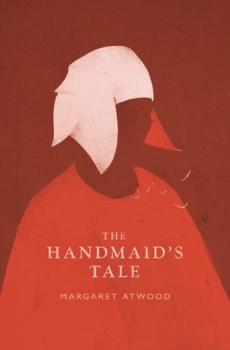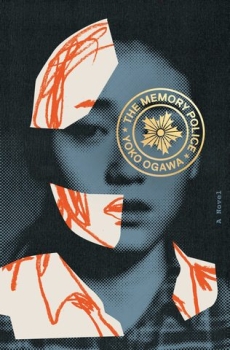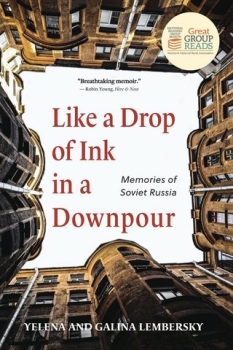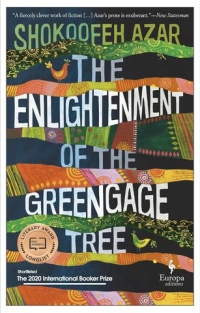
The Enlightenment of the Greengage Tree, by Shokoofeh Azar
Shokoofeh Azar (born 1972) moved to Australia as a political refugee in 2011. In Iran, she studied literature, and had a career as writer, editor and later human rights journalist. Arrested three times, she once served three months solitary confinement. At her family’s urging she fled Iran, through Turkey and then Indonesia, and on to Christmas Island and Australia.
Greengage was written in Persian. The English translation was shortlisted for the Australian Stella Prize, and the International Booker.
Historical context
The novel is primarily set in the wake of the Iranian Revolution that overthrew the last Shah of the Pahlavi dynasty in 1979. The Shah’s pro-Western, secular, authoritarian monarchy was replaced with an anti-Western Islamist theocracy (the Islamic Republic of Iran), under the leadership of the Ayatollah Khomeini (1900-1989). Intellectuals who spoke for individual freedoms and pluralism were targeted as elitists, traitors or foreign spies.
The book club is hosted at the Tempe Public Library, convened by Keith Brown. [email protected]. For the latest book club meeting register at: tempepubliclibrary.org and click Event Calendar.
Some key passages and questions
- When did you realize what had happened to Bahar, the narrator? Which of the three siblings’ fates most affected you, and why?
- Some authors (according to Wikipedia) interpret the Persian word jinn to mean, literally, 'beings that are concealed from the senses.' How did the book change your understanding of jinns? What category do they translate into in English - are they ghosts, spirits, poltergeists, some combination, or something else?
- The novel contains many extended stories, including family tragedy (29-33), Khomeini’s madness and haunted death (78-87), an ancestral curse (118-126), and a one-sentence family saga (156-68). Do all these different voices cohere for you, as reader?
- “In the end, it was the putrid stench that guided them [to Khomeini’s roang corpse]. The same stench that all dictators secrete in the end.” (87). What else has a distinctive smell in the novel? (For example, what is the smell of “Black Love” (144-5).
- Before she ends her life, Issa’s sister Effat tells the people around her “None of you understands what it means to be two.” (142). What do you think she means? Do you see this theme of doubleness elsewhere in the novel?
- Beeta asks Bahar “how about with me you respect the boundaries of life and death.” (167). Is this the most significant boundary in the book?
- Throughout the book, characters seek relief from painful realities (by reading, dreaming, or self-chosen exile). Are these acts of imagination or refusal political, or apolitical? When Hushang and his brother Khosrow debate this, (202-208) who do you side with?
- In one interview, Azar said about Bahar “I should confess. I am her.” (Sydney Morning Herald). Does that change your reading of the book?
- For many characters (especially Beeta and, as their children die, Roza and Hushang) the lived past is a place of trauma and sadness. Do you end the book with greater or less faith in the importance of preserving history and literature?
- The novel includes poetry both by known Iranian authors, and by fictional characters, like Sohrab’s poem: “Last night somebody died / And still, wheat bread is good / And water flows down, horses drink.” (115) What impact does the novel’s poetry make?
Themes and style, from author interviews:
Magical realism:
Shokoofeh Azar has called One Hundred Years of Solitude her “holy book” (The Garret podcast) She has also expressed the view that “most people in Iran live in the heart of magical and supernatural beliefs,” and cites her book’s use of lyrical magical realism as coming from classical Persian storytelling (LA Review of Books).
Conflict/Tension/Polarities:
Azar states that the book “is an embodiment of Iranian life in constant oscillation, struggle and play between four opposing poles: life and death, politics and religion” (LA Review of Books).
Books and Poetry:
Azar’s father was an avid book collector. (LA Review of Books). This lies behind the novel’s family library of 5000 books, the lists of books/authors we read in the novel, for example, during the book burning (96); Beeta’s reading list (169); the family’s reading list for Beeta (177); Hushang’s return to Tehran (187).
Resilience, Suffering and Hope
The Stella Prize jury called the book “A stunning meditation on grief and loss in the life of a family and society.” Azar herself has described the novel as an exploration of the question “can we survive without passion and hope in a religious dictatorial system?” (LA Review of Books).
Selected reviews and interviews
Summary of reviews (and links to them)
Author interview
30-minute podcast interview, about the writing and translating process
Article that includes historical context
Article that includes some details of her escape to Australia
Review with deeper analysis
Review that focuses on Magical Realism
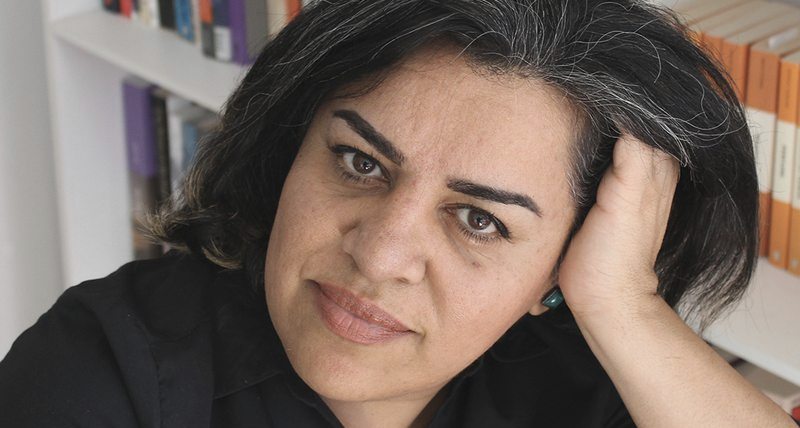
Shokoofeh Azar (born 1972) moved to Australia as a political refugee in 2011. In Iran, she studied literature, and had a career as writer, editor and later human rights journalist. Arrested three times, she once served three months solitary confinement. At her family’s urging she fled Iran, through Turkey and then Indonesia, and on to Christmas Island and Australia.
Greengage was written in Persian. The English translation was shortlisted for the Australian Stella Prize, and the International Booker.

